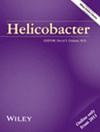Gastric Cancer Endoscopic Screening in an Intermediate-Risk Country—A Dual-Center Pilot Program
Abstract
Background
Gastric cancer remains a major global health concern and is still frequently diagnosed at advanced stages in Western countries. Despite increasing evidence supporting the role of endoscopic screening in intermediate-risk regions such as Portugal, no national program currently exists. This study aimed to evaluate the feasibility, adherence, and diagnostic yield of opportunistic upper endoscopy performed simultaneously with colorectal cancer screening.
Material and Methods
We conducted an observational retrospective study including individuals aged 50–74 years scheduled for a screening colonoscopy, who were invited to undergo an additional upper gastrointestinal endoscopy, between February 2023 and February 2025 in two endoscopy units in the Alentejo region of Portugal. Data regarding demographics, endoscopic findings, and histology were collected and analyzed descriptively.
Results
Of 401 individuals invited, 380 (94.8%) accepted and underwent upper endoscopy, and 377 were included in the final analysis. Histological findings included Helicobacter pylori infection (30.8%), chronic atrophic gastritis (36.9%) and intestinal metaplasia (10.1%). Regarding neoplastic lesions, 2 cases (0.5%) of low-grade intraepithelial neoplasia, 3 cases (0.8%) of gastric adenocarcinoma, and 2 cases (0.5%) of gastrointestinal stromal tumors were identified, yielding a total malignancy rate of 1.9%; no early gastric cancers were identified. Colorectal findings included 29.2% precancerous lesions and 3.4% invasive colorectal cancer.
Conclusion
This study confirms that opportunistic upper endoscopic screening, integrated into colorectal cancer-screening programs, is feasible, well accepted, and diagnostically valuable in an intermediate-risk Western population. The high rate of precancerous conditions and malignant lesions detected reinforces the need for structured screening strategies. These results align with international recommendations and provide real-world evidence to support broader implementation in similar healthcare contexts.
Study Registration
ClinicalTrials.gov: NCT06316882

 求助内容:
求助内容: 应助结果提醒方式:
应助结果提醒方式:


